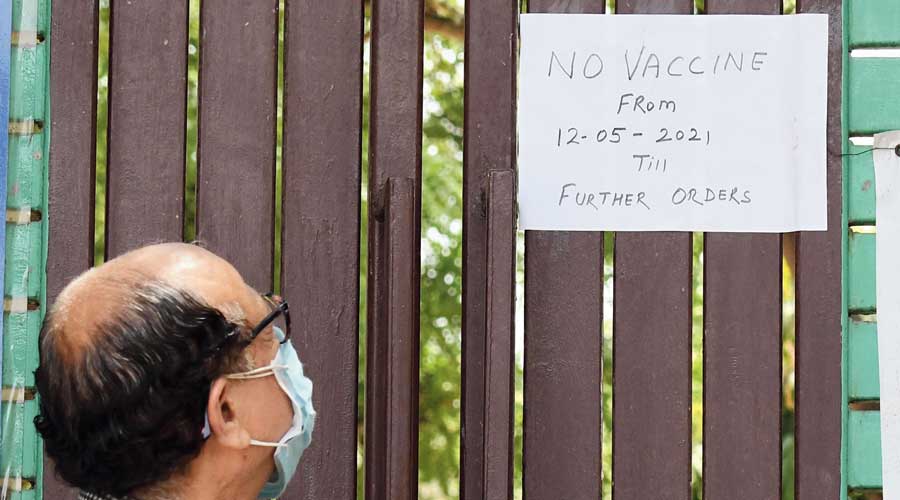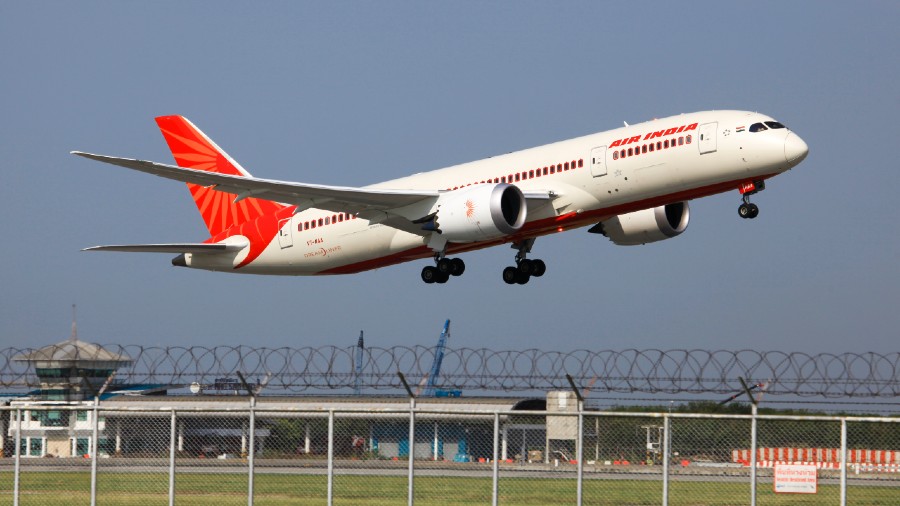Recipients of the Covishield vaccine should take their second doses only after a gap of 12 weeks, the Union health ministry said on Thursday, accepting recommendations from advisory panels and citing new real-world evidence from the UK.
The ministry said it had accepted the recommendations of two advisory panels on vaccines to expand the gap between the first and second Covishield doses to 12-16 weeks from the current gap of 6-8 weeks, introduced on March 22.
The recommended gap between the two doses of Covaxin, the other Covid-19 vaccine currently used in the nationwide vaccination campaign, remains four weeks.
Medical researchers, including some members of the advisory panels, said the decision on Covishield was backed by scientific evidence. But the timing of the announcement exposes arbitrary decision-making amid what some health experts have described as India’s self-inflicted vaccine shortage.
The health ministry said a Covid-19 working group under the National Technical Advisory Group on Immunisation (NTAGI) had recommended the extension of the gap and the National Expert Group on Vaccine Administration had accepted it.
“There is adequate and growing evidence that delaying the second dose of Covishield actually helps,” a member of one of the advisory bodies told The Telegraph.
“There is some evidence that a delayed second dose enhances the immune response.”
While the initially recommended gap between the two Covishield jabs was 4 to 6 weeks, researchers said, evidence of the benefits of delaying the second dose had emerged by February this year.
The World Health Organisation had in February said that “longer dose intervals within the 8 to 12 weeks range are associated with greater vaccine efficacy”.
Health officials had in March not explained why the government had revised the gap to 6 to 8 weeks instead of 8 to 12 weeks, as recommended in the WHO guidelines.
Some doctors in India, including Gagandeep Kang, a vaccine specialist and senior clinical microbiologist at the Christian Medical College, Vellore, had in March indicated they would take the second dose in the 8-to-12-week period in line with the WHO recommendation.
Health experts not associated with the advisory bodies but tracking the vaccination policy said India should ideally have adopted the 8 to 12 weeks interval back in March itself.
“This could have prevented a huge amount of confusion among the public,” said an expert who requested anonymity.
The Centre’s vaccine advisers are also mulling a decision to ask people who have recovered from Covid-19 to defer their first vaccine doses by up to six months.
Researchers say there is strong evidence that those who have recovered from Covid-19 are protected for several months. They believe the expanded gap between the Covishield doses and the recommendation for recovered patients to defer vaccination would help more people get their first doses faster.
A study by Britain’s Public Health England, published in April this year, had found that a previous Covid-19 infection was associated with an 84 per cent lower risk of infection, with the protective effect observed for up to seven months after the primary infection.
“We’ve known this for a long time — those who’ve recovered from natural infections are protected for some time,” said Jayaprakash Muliyil, former professor of community medicine at the CMC, Vellore. “We should implement this now without any delay.”
Some health officials had last year indicated that one option they were examining was to use the previous history of Covid-19 infections as a criterion for delaying vaccination, but the plan was not implemented when the vaccination campaign started earlier this year.












